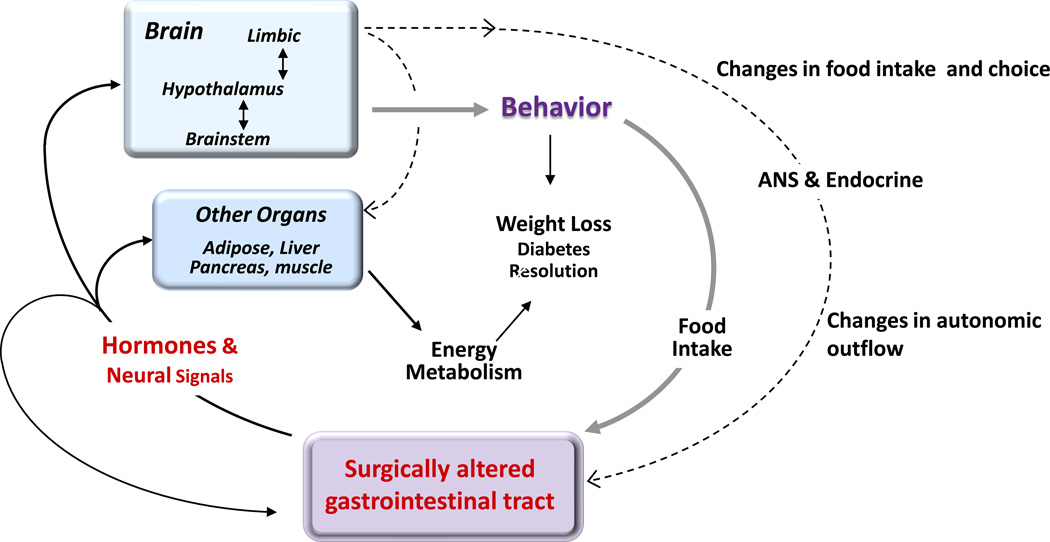Fig. 1. Flow of information potentially involved in the physiological and behavioral consequences of gastric bypass surgery.
The primary surgical insult in the gut leads to progressive adaptive changes in structure (e.g. mucosal hypertrophy) and function (e.g. shift in microbiota composition, hormone release patterns, and bile acid metabolism). These combined changes signal to other organs, such as the liver, adipose tissue, pancreas, muscle, and brain, through either the circulatory or nervous system and ultimately lead to changes in energy intake, food choice, and energy expenditure. Changes in signaling to the brain not only affect food intake, but also autonomic and endocrine outflow back to the gut as well as to the other organs. ANS: Autonomic nervous system.

